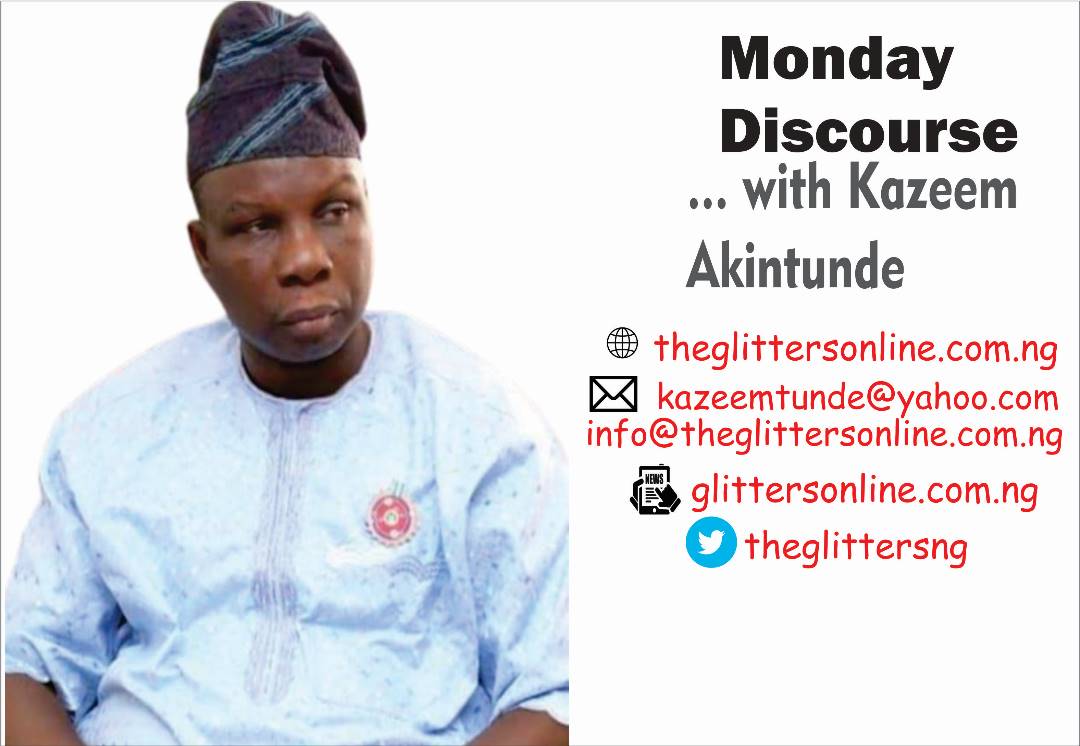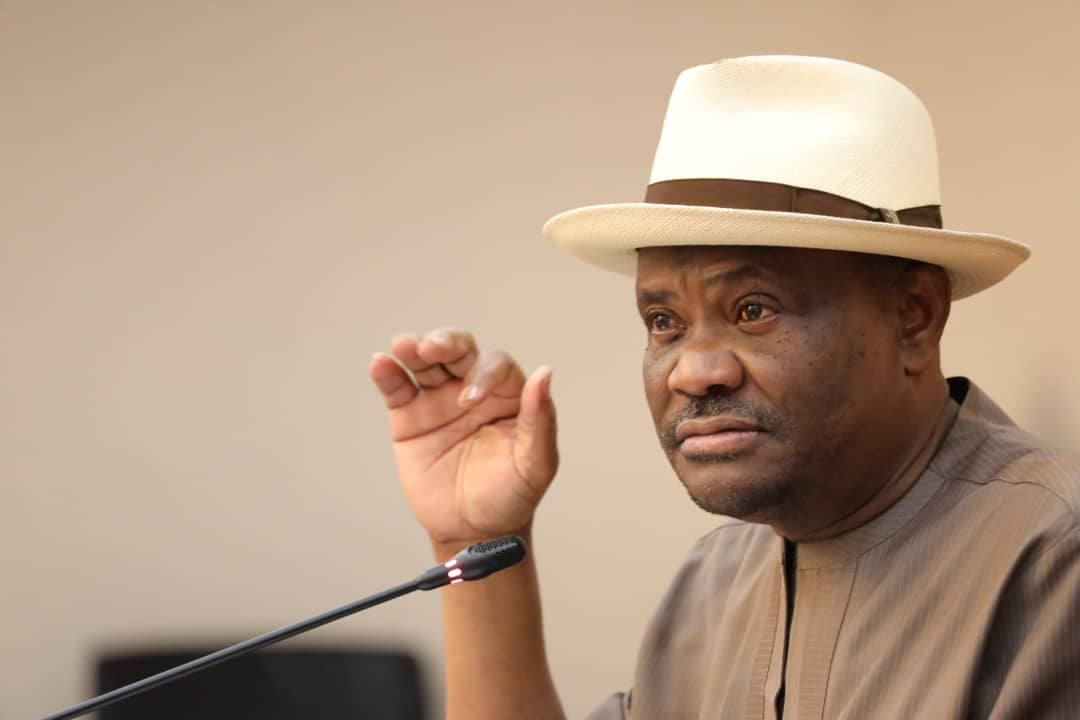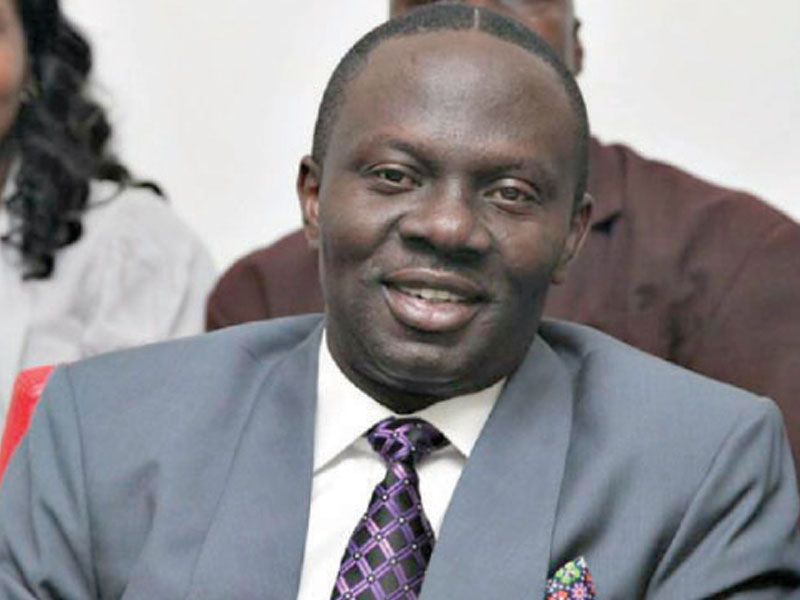INEC, Mahmood Yakubu And History, By Kazeem Akintunde
I cringed and I was moved to tears after reading a tweet from Abubakar Hamma Galafi on his Twitter handle @Galafo_Hamma recently. Galafi wrote: ‘I cursed this man, Prof Mahmoud in every of my sujoud this fasting and appealed to Allah (SWA) to deny him peace and harmony on earth and in the hereafter. He cheated Nigerians, cheated his name, his family, and his religion.’
What could have been responsible for such a post is beyond me. I am still lost as to why a human being would be so angry with a fellow man that you may have never come across in life, a man that may never have known of your existence and it is in doubt if the two of you would ever meet in real life. The tone was too harsh and the religion of Islam which the writer professes does not allow for such hatred. And coming in the holy month of Ramadan? May Allah forgive him!
His anger and hatred for Mahmood Yakubu, the Chairman of the Independent National Electoral Commission (INEC), if probed, can’t be more than INEC’s conduct of the last general elections. And if Galafi is this pained and in anguish over it to such an extent as to place a curse on the INEC chairman, what should people like Atiku Abubakar, Peter Obi, Rabiu Musa Kwankwaso, and others who are directly involved and affected by the outcome of the elections do? Though Galafi would be indirectly affected by the policies and actions of those declared winners of the polls, does that give him the right to curse and lampoon the man for his actions along with the activities of an agency of government he heads? In any case, is the agency not in fact being challenged in the court of law? Why not let the court decide?
That your candidate was not declared the winner of an election does not mean that we should throw away the baby with the bath water. There are many positive outcomes from the just concluded general elections and I believe in the fullness of time, Yakubu would be vindicated.
Here is a man who promised that the old order, where politicians sit in the comfort of their bedrooms and write figures for INEC was gone forever with the introduction of the Bimodal Voter Accreditation System, BVAS. Have we forgotten that many politicians were not comfortable with the introduction of the technology and did all within their power to frustrate its adoption by the National Assembly? Do we still care to remember that many politicians called for his sack over the introduction of the electronic transmission of results?
How many Nigerians recollect the lobby and pleading most Nigerians did before members of the National Assembly passed the 2022 Electoral Act as amended before it became operational after it was assented to by President Muhammdu Buhari?
Agreed, there were hitches here and there during the exercise, but we can’t deny that the INEC boss has changed the narrative in our electoral process to the extent that votes actually count now. In the past, is it possible for a former Governor who has spent eight years in office to lose a Senate seat in his State? But under Mahmood and his BVAS, seven Governors contested elections to the Senate and lost. And why was that possible? Because votes actually counted in the last voting exercise. You can longer sit in one corner and conjure up figures for INEC.
Governor Simon Lalong’s attempts to represent Plateau South senatorial constituency failed after he lost to a first-timer, AVM Napoleon Binkap Bali (Rtd), of the People’s Democratic Party (PDP). Lalong, who was the Director of Campaign for the All Progressive Congress Presidential Candidate, Bola Tinubu for the February 25 presidential election was floored by AVM Bali, who polled 148,844 votes to Lalong’s 91,674. Lalong also failed to deliver Plateau state for Tinubu, with the APC presidential candidate scoring 307,195 votes while Peter Obi of the Labour Party polled 466,272 votes to win the state.
Governor Okezie Ikpeazu also suffered a humiliating defeat during the Abia-South Senatorial elections, coming a distant third behind Senator Enyinnaya Abaribe of the All Progressives Grand Alliance (APGA), and Chinedu Onyeizu of the Labour Party (LP). According to official results declared by INEC, the incumbent Governor only polled 28,422 votes. Abaribe, who won the election, scored 49,903 votes while Onyeizu of LP got 43,903 votes. Ikpeazu, who was part of the G5 governors – an aggrieved group in the PDP that worked against the candidacy of Atiku Abubakar – failed to inspire the majority of voters who queued behind LP and its presidential candidate, Peter Obi.
Governor Ifeanyi Ugwuanyi lost the Enugu-North Senate seat to Okey Ezea of the Labour Party. Ezea floored the incumbent Governor, winning the election by a wide margin. The LP candidate polled 104,492 votes while Ugwuanyi only got 46,948 votes. Ugwuanyi, who had spent 12 years in the House of Representatives before becoming Governor for another eight years was accused by opposition parties of owing retirees pensions and failing to provide critical infrastructure in the state. The APC in the state also accused the Governor of failing in the aspect of human capital development. Although the governor’s defeat can be attributed to the ‘Obidient’ hurricane that swept the Southeast region, Ugwuanyi was also accused of nepotism in the way he cited projects in the Senatorial zone. His choice of a successor in Peter Mbah also angered a section of his constituency, who felt the next Governor should come from Isiuzo Local Government Area, and it was not a surprise when he kissed the canvass.
Governor Samuel Ortom lost his bid to represent Benue- North West constituency in the Senate to his former aide, Titus Zam of the PDP. The Governor polled 106,882 votes, while Zam, who won the seat, got 143,151 votes. Opposition parties in the state had accused the governor of unprecedented corruption, unpaid pensions, poor performance in office, and a failure to adequately support teachers and civil servants. Despite promising to improve the state’s workers’ welfare, infrastructure, and economy, Ortom’s critics say that little or no progress has been made in these areas. Some have also accused Ortom of failing to adequately address the state’s security challenges, including clashes between farmers and herders.
Taraba state Governor, Darius Ishaku lost his bid to move to the Senate after his eight-year stint as Governor to APC candidate, David Jimkuta. The Governor lost by a wide margin, polling 45,708 votes against Jimkuta’s 85,415. The leadership of the APC in the state had continuously berated the Ishaku administration, describing it as a failure. The APC accused Ishaku of withholding local government funds, and failing to deliver affordable healthcare to residents of the state.
Governor Ben Ayade of Cross River also suffered a fatal defeat in his bid to return to the Senate after completing his eight-year tenure as Governor.
Ayade, who was in the Senate from 2011 to 2015, had hoped to return to the role as Senator representing Cross River-North but he was defeated by the incumbent, Jarigbe Agom-Jarigbe. PDP’s Agom-Jarigbe got 76,145 votes while Ayade polled 56,595.
Another APC governor, Atiku Bagudu of Kebbi State, lost his bid to represent Kebbi-Central Senatorial District in the forthcoming 10th National Assembly. He lost to Senator Adamu Aliero. Announcing the result in Birnin-Kebbi, the Kebbi State capital, the Returning Officer, Abbas Bazata, declared the PDP candidate, Adamu Aliero winner having scored 126,588 votes against Bagudu, the Chairman, APC Progressive Governors’ Forum, who scored 92,389 votes.
The feats recorded against the Governors were due to the innovations introduced into the conduct of the exercise by Mahmood. While big names who have been in the corridors of power are being shown the way out, relatively young Nigerians, some of them without any funds to buy their way to power have been elected to various offices across the country. This is due to the level playing field Yakubu and his men at INEC provided for young Nigerians. For example, Rukayat Motunrayo Shittu, a 26-year-old journalist emerged winner of the Kwara State House of Assembly election representing Owode/Onire Constituency in Asa Local Government Area of Kwara State. Shittu polled 7,521 votes to defeat her closest rival, Abdullah Magaji of the Peoples Democratic Party (PDP) who scored 6,957 votes. Shittu is the youngest lawmaker in the state and arguably the youngest in the country to clinch the House of Assembly seat in the 2023 House of Assembly elections. That was a feat.
The exploit by the candidate of the Labour Party (LP) in Kaduna State, Mr Donatus Mathew is also worth celebrating. Mathew, an Okada rider, was declared the winner of the Kaura Federal Constituency of Kaduna State. In June, Mathew would be among lawmakers that would be inaugurated by President Bola Tinubu as a member of the House of Representatives. Mathew had polled a total of 10,508 to defeat the incumbent member and candidate of the Peoples Democratic Party (PDP), Hon Gideon Lucas Gwani, who came second, with 10,297 votes.
In several parts of the country, relatively unknown figures have been elected to offices due to the level-playing field provided by INEC. It is also worth noting that both President Buhari and the incoming President Tinubu lost their home states, Katsina and Lagos respectively to rival political parties. These are things never heard of in Nigerian politics. Yet, many are still not happy with Yakubu and the INEC.
In areas where there are glitches, the electoral umpire has urged contending parties to prove their case in court rather than sulking and creating tension in the country.
The BVAS and the number of Nigerians that voted during the elections has again, brought to the fore, the argument that Nigeria’s total population may be far less than 200 million as is popularly believed. In spite of the mobilization by all the political parties and the enthusiasm shown by many Nigerians to vote, the number of Nigerians that actually voted was an abysmal 24 million. In the 1999 general elections, 29.8 million Nigerians were said to have cast their votes. In 2003, the figure rose to 39 million but 20 years after, it dropped to 24 million with the use of technology. This again shows that figures were allocated in the past and that we may be getting to a realistic figure of the actual population size of the country. This will, however, be confirmed in a few weeks’ time as the National Population Census is set to hold and with the use of similar technology as the one deployed by INEC.
Agreed that there are no perfect elections anywhere in the world, INEC still needs to take stock of its shortcomings in the 2023 polls to guard against future occurrences.
The likes of Galafi should look at themselves in the mirror and smell the coffee. Rather than blaming Yakubu entirely for the faults noticed in the poll, he should at least look in the direction of politicians who have turned politics and winning elective posts into do-or-die affairs. I’m bold to say that the INEC Chairman is not the problem and I believe that history will be kind to him in the near future.
See you next week.



